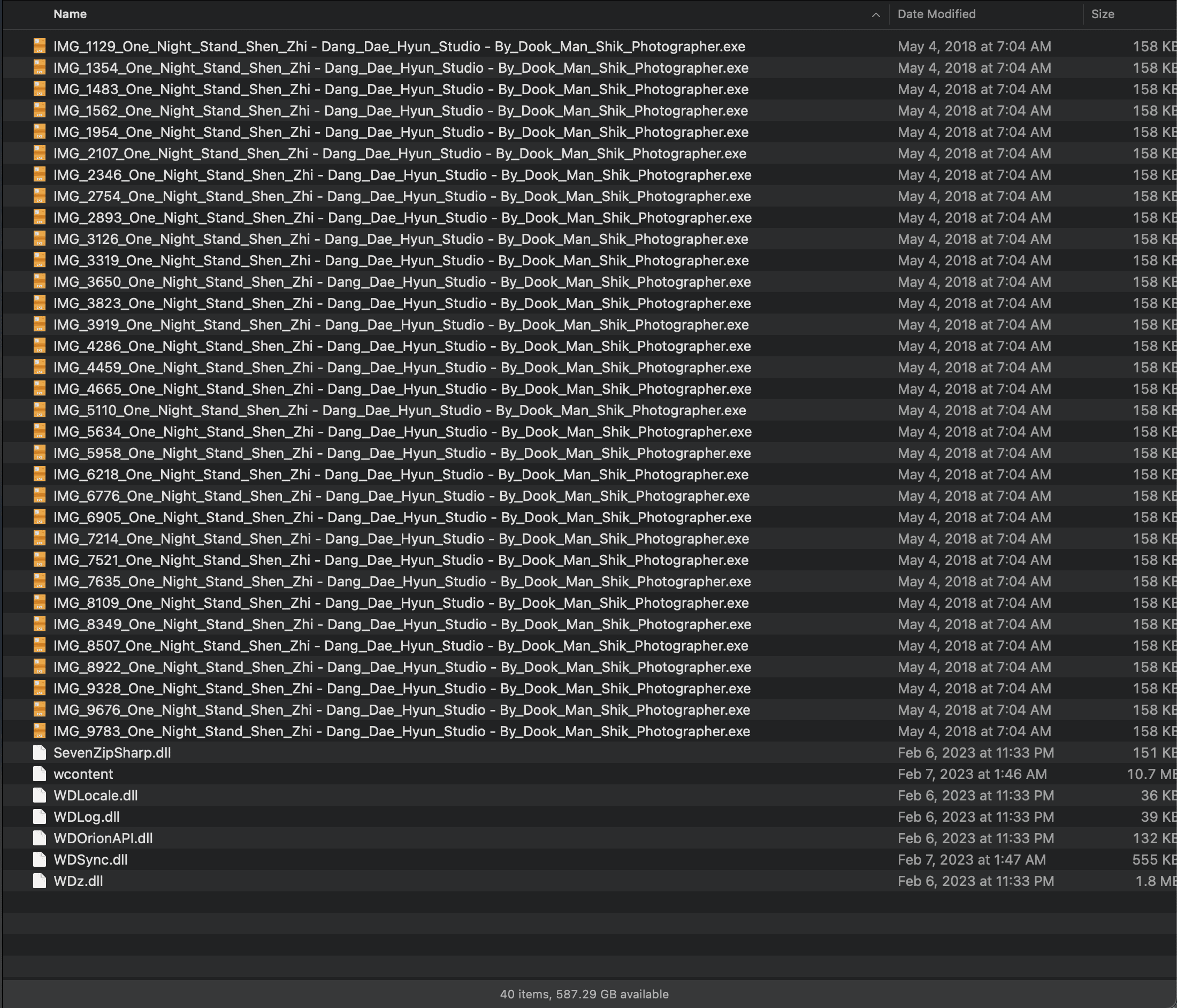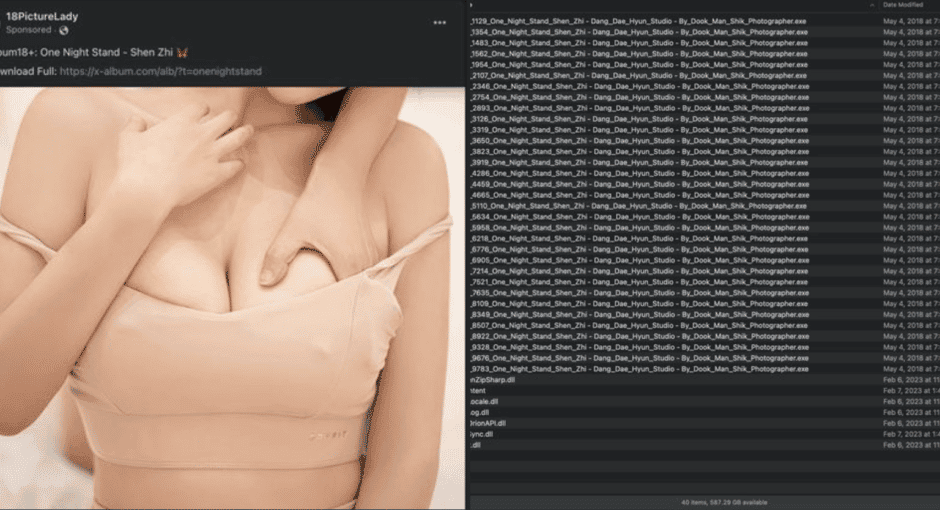Facebook, the largest social media platform in the world, has recently come under fire for failing to filter out ads that are malicious and contain links containing malware. This has caused serious concern among its users, who trust the platform to protect them from cyber threats and ensure the safety of their personal information.

Recently, I stumbled upon a concerning instance of malicious advertising on Facebook. The ad in question was from a page called “18PictureLady” and it promised to provide users with access to a selection of images. However, upon clicking the “Download” button, I was directed to a page where a file automatically began downloading to my device.

As a precautionary measure, I opened the file in a Linux virtual machine. Upon inspection, I discovered that the file was a zip archive containing several executable and dynamic link library (DLL) files, which could only be opened on Windows-based machines. This raised red flags for me as I was aware that these types of files can often contain malware. I submitted the files in IBM XForce for analysis and it turned out to be high risk. You can check the report here IBMXforce d186f481ae69003b12d8cdd27bef016a.

This is not a new issue for Facebook, as the company has been struggling with this problem for years. In spite of their efforts to improve the ad-screening process, malicious ads continue to slip through the cracks and put users at risk. This is a major concern, as Facebook has over 2.8 billion active users, and even a small percentage of them being exposed to malicious ads can result in significant harm.
One of the reasons why Facebook has been unable to effectively filter out malicious ads is because of the sheer volume of ads that are being posted on the platform. With millions of ads being posted every day, it is difficult for Facebook’s ad review team to keep up with the demand and ensure that every ad is screened for malicious content.
Another reason for the failure of Facebook’s ad-screening process is the use of sophisticated tactics by cyber criminals. They are using increasingly advanced methods to hide their malicious links, making it difficult for the ad review team to detect them. Additionally, they are constantly adapting to the latest security measures, which makes it even more challenging for Facebook to stay ahead of them.
In conclusion, Facebook’s failure to filter out malicious ads is a serious issue that needs to be addressed. The platform has a responsibility to protect its users from cyber threats and ensure the safety of their personal information. Facebook must take the necessary steps to improve its ad-screening process and invest in more advanced security measures to prevent malicious ads from appearing on the site. Until then, users should exercise caution when clicking on ads and be vigilant of any suspicious links.






